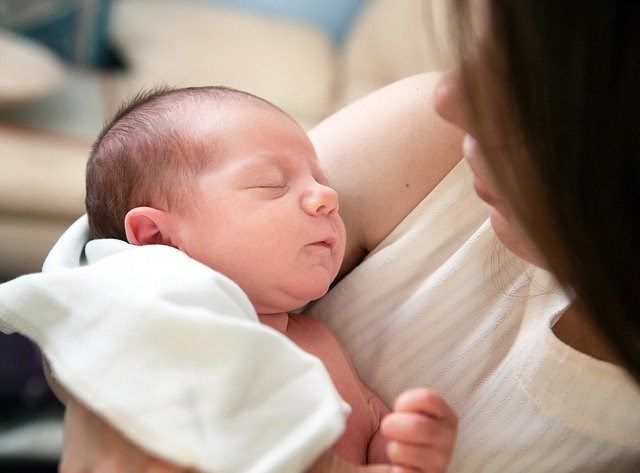Pregnant women do not seem to be any more susceptible to COVID-19 than anyone else with similar age and health conditions.
But they should still take precautions to avoid getting the virus because complications can arise during the third trimester and delivering a baby becomes more complicated if women have symptoms at the time of delivery, said Dr. Kathleen Ross, president of Doctors of BC and a Coquitlam physician who also delivers babies at Royal Columbian Hospital in New Westminster.
In an interview with the Tri-City News this week, Dr. Ross said that now more than ever, it’s important for pregnant women to be in regular contact with their primary caregiver if they have concerns.
“The key thing is to have that open channel of communications,” Ross said.
Here are her answers to questions pregnant moms might be asking during this challenging time:
Do I have COVID-19, what are the symptoms?
According to Dr. Ross, novel coronavirus symptoms vary from person to person but percentages breakdown as follows, indicating what key symptoms to watch for:
A fever is common, with 86% of COVID-19 patients having a fever. Other common symptoms are cough (68%), fatigue (38%), shortness of breath (19%), sore throat (14%), headache (14%) Diarrhea and vomiting are uncommon. You may not have all of these symptoms.
What to do if you have COVID-19 symptoms?
Contact your doctor immediately. If you are in your third trimester (35 weeks) or moderately ill, you will be asked to take a COVID-19 test.
How easy is it to catch COVID-19?
COVID-19 has an infection rate that is higher that SARS (severe acute respiratory syndrome) but much lower than measles. The average is for a person infected with COVID-19 to infect 2.2 others, compared 1.2 to 1.5 for SARS and 12 to 18 people from someone who has the measles.
Ross noted that pregnant women are susceptible to getting the flu, which is why a flu vaccine is recommended. She also recommended that pregnant women be scrupulous with their physical distancing and hand washing to make sure they don’t get infected with COVID-19.

How serious is COVID-19?
Doctors are still analyzing the impact of the virus and much won’t be known until six months to a year or now, Ross said. But information so far indicates that 20% of the population will develop severe symptoms, many requiring hospitalization, and the death rate is between 1% and 4%, depending on the country and available health resources. It’s also known that people with other health complications, such as diabetes, high blood pressure, chronic obstructive pulmonary disease or cardiovascular disease, or who are older, have a higher risk.
Compared to H1N1, a pandemic that occurred in 2009, there is no supportive treatment for COVID-19 and there is no vaccine, although a vaccine is in development. During the H1N1 outbreak, medications and the flu vaccine were able to provide some protection from H1N1, according to Ross.
What is the risk of problems giving birth if you have COVID-19
Dr. Ross said there is the possibility of complications and it’s very important for women to be in contact with their doctor if they have COVID-19-like symptoms. Closer follow-up and increased monitoring may be needed.
While no pregnant moms in the Tri-Cities are known to have delivered while infected with COVID-19, that could change as infection numbers grow. Ross said symptomatic moms in their third trimester are being tested for COVID-19 to ensure they get the required support and enhanced fetal monitoring as well as to inform the hospital so it is prepared to manage them properly if they go into labour while ill.
What happens during labour and who can I have with me in the delivery room?
• Nitrous oxide won’t be offered as a pain reliever because of dangers that droplets may aerosolize if an asymptomatic mom does have COVID-19; epidurals may be offered sooner, if needed, and other narcotics will be made available as required.
• Doctors and nurses will be fully suited up with personal protection equipment.
• After delivery, mothers with COVID symptoms may be discharged sooner, if everyone is stable, with follow-up at home.
• For women with COVID-19 symptoms, masks will be worn to avoid infecting the newborn or others at home, and anyone else. As well, proper and regular hand washing, of course, is recommended.
• Breastfeeding will be encouraged as normal.
• Visitors are not recommended during this time, especially anyone who is sick.
• Doulas may be allowed to attend the birth, after discussions about the possible risks, and if attending, will be asked to wear personal protection equipment; if not attending, they’ll be encouraged to provide support before and after the birth.
• A support person, usually the woman’s partner, will be allowed in the delivery room as long as they are not sick.
“We are going to look after you, we are going to look after your baby and make sure we don’t infect you and you don’t pass the virus to someone else and that you do not pick up the virus in hospital.
“I encourage people to stay connected to their primary care provider. We’ve got this and we can do this together.”
• Additional information is available here:
For more stories about the COVID-19 pandemic in the Tri-Cities and beyond, visit here.



